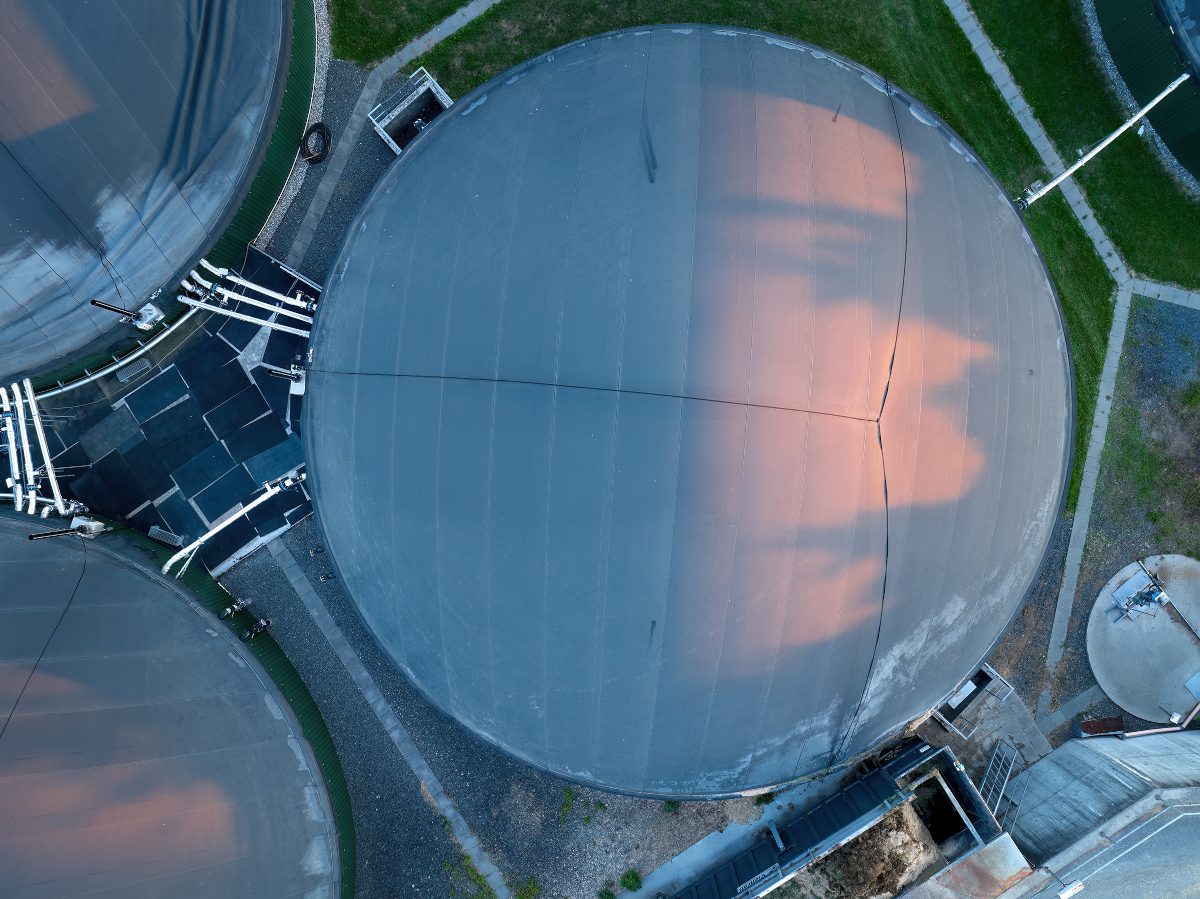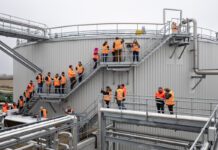
Renewables developer Dark Green Group has said it plans to be the first company in the UK to build a fleet of anaerobic digestion (AD) plants in urban locations. It is developing up to 12 AD plants over the next five years, on urban industrial sites, which together could process over 700,000 tonnes of organic waste per year and power up to 80,000 homes with green gas.
Dark Green says it has identified six sites where it aims to put in planning applications this year, and a potential for a further six beyond 2025. Its first phase of projects include developments at a former industrial site in Birmingham – at Tyseley Energy Park, a major public-private urban regeneration scheme – and at a number of manufacturing campuses in Yorkshire. All the developments will include heat, power and hydrogen production.
The proposed AD plants will convert food waste into green gas for homes and business use, helping local councils meet their Net Zero ambitions, and creating jobs in their construction and operation. AD offers an environmental-friendly alternative to landfill and energy-from-waste incineration, so cutting CO₂ and methane emissions. The Government has identified concerns about the emissions from existing waste incinerators and announced on 30 December that it is tightening restrictions on planning applications for them.
Dark Green’s plans also are a response to the changes in food waste regulations that come into effect this year, with all non-household premises in England required to separate food waste and arrange for its separate collection. This will mean 4.75m tonnes of food waste will be diverted from general waste streams and will need to be processed separately.
Charlie Clay, Chief Executive of Dark Green Group said: “Modern, urban anaerobic digestion can be a lynchpin in the energy transition as it offers a multitude of benefits for homes and businesses. From the processing of organic waste, we will produce clean, green and secure energy supplied directly to industry and business locally, and for household use. Our solution is a leading example of the ‘circular economy’.”
In addition, Dark Green said its proposals support the UK’s commitment to decarbonise the gas grid, as part of the move to Net Zero. Dark Green’s urban AD projects also address a major issue with clean energy generation by delivering consistent and reliable base load power 24/7.
Dark Green’s projects “will provide businesses with a green gas option to fuel their operations, whether for transport use, heating or manufacturing”. The recent Clean Energy 2030 report from the National Energy Systems Operator (NESO) to the Department for Energy Security & Net Zero highlighted green gas (biomethane) as “an additional clean dispatchable option in the power sector”. Energy Minister Miatta Fahnbulleh MP also recently commented that: “Anaerobic digestion and biomethane allows us to reduce our reliance on fossil fuels.”
While the UK is forging ahead with renewable, sustainable electricity supply, less than 1% of the gas consumed by homes and businesses is green gas.

Dark Green’s pipeline of 12 projects aims to handle over 700,000 tonnes of waste a year, providing green gas for up to 80,000 homes and businesses, saving the same amount of CO₂ as taking around 70,000 cars off the road, with additional by-products of sustainable organic fertilizer for farming, parks, allotments and gardens.
While urban AD plans exist in Europe – for example in Frankfurt in Germany and Groningen in The Netherlands – in the UK it has been focussed predominately in agricultural areas or on electricity production.
Charlie Clay added: “Anaerobic digestion and its organic fertiliser by-products allow city waste to be looped back into the growing cycle for the sustainable production of food. Also, we will produce biogenic CO2 which can be used for making food and in the creation of sustainable aviation fuel and other similar fuels.”
Dark Green adds that its projects at Tyseley Energy Park and in Yorkshire will offer hubs for the research and development of waste recovery and gas production, being networked with industrial partners who are at the forefront of climate tech innovation.







